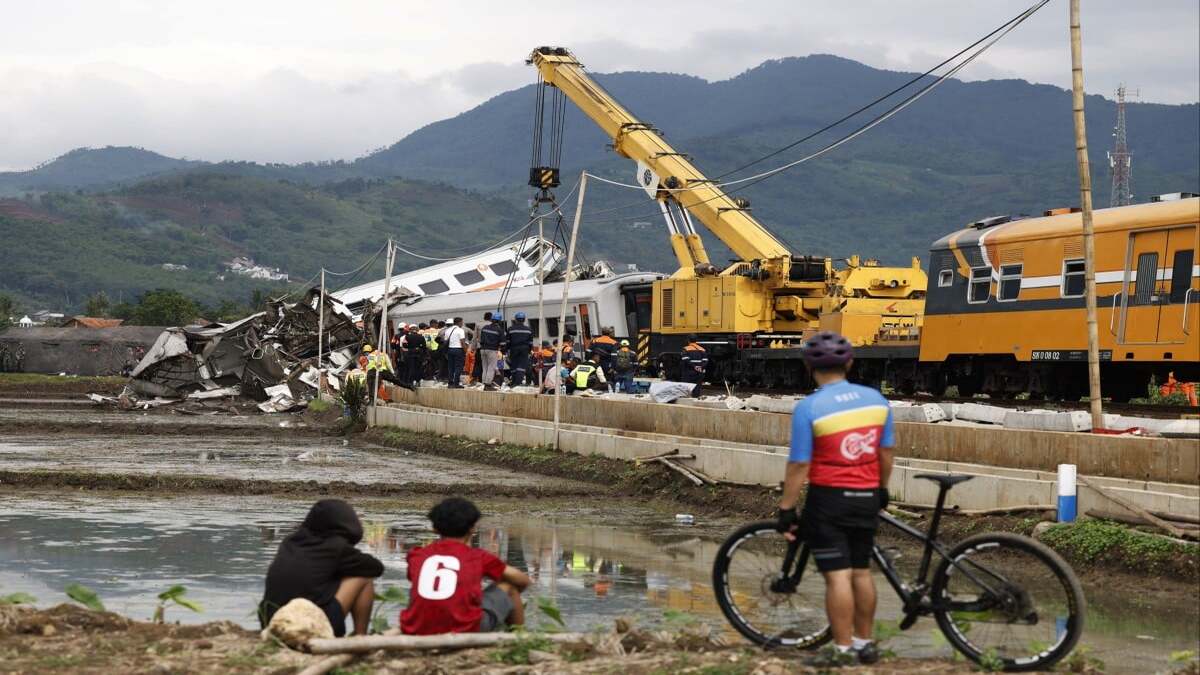On Friday morning, 5th January two trains collided in Indonesia, resulting in four fatalities and leaving at least 22 passengers injured. The collision occurred near Cicalengka, a region in West Java province, as two trains carrying hundreds of passengers crashed on a stretch of tracks cutting through rice fields.
The front carriages of both trains bore the brunt of the collision, ending up in a mangled wreck, while the subsequent carriages derailed and overturned. The incident took place at 6:03 am local time and involved an intra-city train carrying 287 passengers and a local line with 191 individuals on board. Fortunately, no fatalities have been reported among the nearly 500 passengers, with all four deaths involving train crew members.
Railway operator PT KAI expressed deep sorrow over the tragic incident and extended condolences for the loss of the train crew members, including the train driver, assistant, steward, and security guard. The crash has raised concerns about railway safety in Indonesia, prompting a swift response from authorities.
Conflicting reports have emerged regarding the number of injuries, with police indicating 37 casualties and the railway operator reporting 22 individuals injured. All passengers have been evacuated, and the injured have been transported to local hospitals. However, a joint rescue team is still working to recover the body of one train crew member buried in the wreckage.
The reason behind the collision remains undisclosed, prompting the Transportation Ministry to dispatch teams to aid in the evacuation and undertake a comprehensive investigation. Ministry spokesperson Adita Irawati expressed regret for the incident, acknowledging the disruption caused to railway services, particularly in West Java.
Transportation accidents are unfortunately not uncommon in Indonesia, a vast archipelago where various modes of transportation, including buses, trains, and planes, often face challenges related to age and maintenance. Last November, a collision between a train and a minibus in Lumajang, East Java province, claimed the lives of at least 11 people and injured several others.
This incident recalls a tragic event in 2015 when a commuter train crashed into a minibus on a level crossing in Jakarta, resulting in 16 fatalities. In 2013, another devastating accident occurred when a commuter train collided with a fuel tanker in Jakarta, leading to seven deaths and numerous injuries as the train burst into flames.

